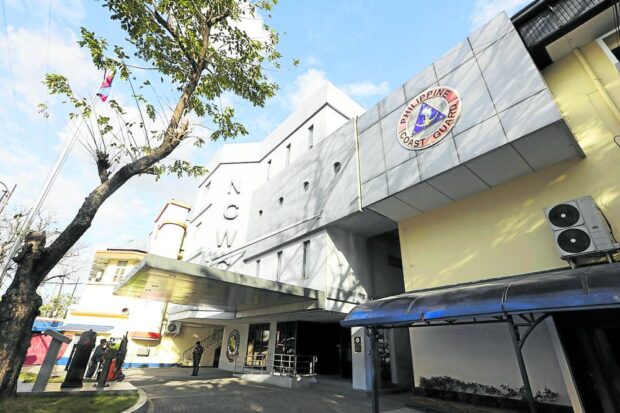
VOW | The Philippine Coast Guard says it will address concerns about its SUV purchase. (INQUIRER FILE PHOTO)
MANILA, Philippines —State auditors have flagged the Philippine Coast Guard (PCG) for buying a P7.8-million bulletproof sport utility vehicle (SUV) for its commandant despite a government ban on the purchase and use of luxury vehicles.
In its 2022 audit report on the PCG, the Commission on Audit (COA) noted that not only did the purchase of a Toyota Land Cruiser Prado lack prior approval from the Department of Budget and Management (DBM), it was also in violation of Malacañang’s Administrative Order No. 14 issued under the previous administration.
The PCG acquired the SUV, which came with a 3956 cc six-cylinder engine, for P4.9 million using its rebates for fuel, oil, and lubricants from Petron Corp. Another P2.8 million was spent to make the vehicle bulletproof.
Under the administrative order, luxury SUVs are defined as having an engine displacement exceeding 2700 cc (if gasoline-fed) or 3000 cc (if diesel-fed), and/or an engine with more than four cylinders.
The PCG said in its explanation to the COA that the vehicle was “deemed necessary… to ensure the safe and secure transportation of [its] commandant and to uphold [its] mandated functions.”
Almost 500 vehicles
State auditors, however, questioned the agency’s justification since it already had 459 service vehicles that were being used by its national headquarters and district offices.
These were in addition to 31 brand-new Isuzu MUX LS-A 4×2s worth P58.9 million that were also charged against rebates from Petron, based on the PCG’s motor vehicle inventory.
“Considering the total number of motor vehicles owned by the PCG, the necessity of acquiring new vehicles to utilize the rebates from Petron Corp. cannot be adequately established,” the COA said.
Its audit report also flagged the lack of daily trip tickets and reports on monthly official travels and fuel consumption for some PCG service vehicles that use around 1,000 liters of fuel monthly.
“These reports are essential to disclose the details of the activities/operations of each PCG district and/or offices,” the COA said. “In view of the non-preparation and/or non-submission of the aforesaid required documents and reports, the propriety and the reasonableness of fuel consumption could not be objectively evaluated.”
It recommended that the PCG require its personnel to prepare and submit such reports in the future. For its part, the PCG agreed to get from the DBM a post facto approval for the SUV purchase and submit this to state auditors.